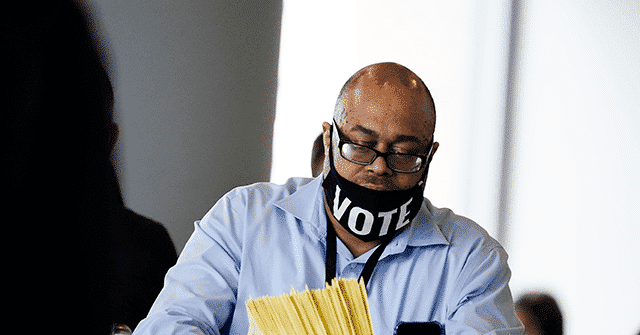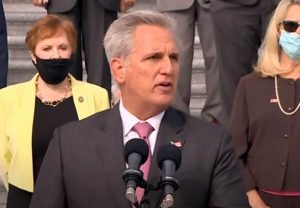Federal Judge Steve C. Jones, a Barack Obama appointee, is set to decide whether some 200,000 people purged from the Georgia voter rolls in 2019 can be put back on, allowing them to cast a ballot in the January 5 runoff election for two Senate seats.
The Law 360 website reported on the consequential case:
U.S. District Judge Steve C. Jones said at the end of a three-hour hearing Thursday that he’ll decide “pretty quickly” whether to grant a request by four multi-state voter and civil rights organizations to re-register the purged voters. Voter registration for Georgia’s senatorial runoffs, which will decide the balance of power between Democrats and Republicans in the upper chamber, closed Monday.
Counsel for the plaintiff organizations said the state did not follow federal law when it determined in 2019 that 313,243 voters should be removed because they had died or moved out of the jurisdiction in which they were registered to vote. The organizations said their experts found through several system checks that 199,908 of those purged were likely still eligible to vote.
“If one person, if two people don’t have the ability to vote because they were wrongly purged, that’s one or two too many,” said Tricia P. Hoffler of The CK Hoffler Firm, an attorney for the organizations. “People died so we could vote.”
The left-wing groups seeking judicial intervention in the runoff include the Transformative Justice Coalition, Rainbow Push Coalition, Black Voters Matter Fund, and Southwest Voter Registration Education Project.
The groups sued Georgia Secretary of State Brad Raffensperger on December 2, claiming violations of the National Voter Registration Act and the 14th Amendment’s guarantee of voting rights.
Raffensperger denied claims the leftist groups made and asked the court to dismiss the case because plaintiffs have no standing and that “to re-register purged voters from an out-of-date list would lead to duplications and associated problems in the January runoffs.”
“The groups said Georgia failed to use a U.S. Postal Service licensee, of which there are 18 nationwide, to check the National Change of Address Registry in order to determine who should be dropped from registered voter rolls,” 360 reported. “This violation of the Voter Registration Act led to the state’s second violation for failing to maintain accurate and current voter lists, the plaintiffs alleged.”
The organizations — all of which want far-left Democrats Jon Ossoff and Raphael Warnock to beat Republican Sens. David Perdue and Kelly Loeffler — also said the Georgia law that says registered voters have to vote to be kept on the voting rolls is unconstitutional.
Jeanne E. Mirer of Mirer Mazzocchi & Julien PLLC, an attorney for the organizations, said their complaint was largely based on a report published on September 1 by the American Civil Liberties Union (ACLU) of Georgia and written by California-based reporter Greg Palast.
A federal judge in #Georgia is considering whether almost 200,000 people purged from the state’s registered voters list in 2019 should immediately be added back so they can vote in the Jan. 5 runoff elections for two U.S Senate seats. – via @Law360 https://t.co/f0RaFo8JTv
— Greg Palast (@Greg_Palast) December 10, 2020
Palast is an anti-President Donald Trump activist who authored the book How Trump Stole 2020 – The Hunt for America’s Vanished Voters.
The ACLU reported Palast hired address verification firms to check the names and registered addresses of the 313,243 purged Georgia voters, which found almost 200,000 had “likely” not moved nor died.
But an attorney for Raffensperger, Bryan P. Tyson of Taylor English Duma LLP, said Georgia contracted Total Data Technologies Inc. to check its registered voter list against data from Anchor Computer Inc., a Postal Service licensee, and that no laws were violated.
“Tyson said the state publicized the voter purge list in 2019 in order to give those who were still eligible to vote time to register before the next election,” Law 360 reported. “He said for the plaintiffs to bring claims a year later and after the start of the election process for the Jan. 5 runoffs was poor judgment, and that changing the voter rolls now would unfairly burden the state’s election officials, who had been working ‘day and night’ for weeks to get it right.”
“Early voting starts in four days, and as of right now that prejudicial impact [on the state] is huge,” Tyson said. “Ultimately, we have a stale motion masquerading as an emergency.”
The case is Transformative Justice Coalition et al. v. Raffensperger, case number 1:20-cv-04869, in the U.S. District Court for the Northern District of Georgia.
Follow Penny Starr on Twitter or send news tips to [email protected]






